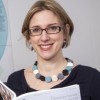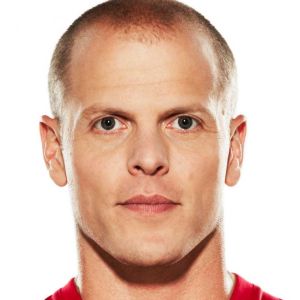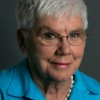Want to know what books Sarah-Jayne Blakemore recommends on their reading list? We've researched interviews, social media posts, podcasts, and articles to build a comprehensive list of Sarah-Jayne Blakemore's favorite book recommendations of all time.
1

"I have discovered a truly marvelous proof, which this margin is too narrow to contain". With these tantalizing words the seventeenth-century French mathematician Pierre de Fermat threw down the gauntlet to future generations. What came to be known as Fermat's Last Theorem looked simple, yet the finest mathematical minds would be baffled for more than three and a half centuries.Fermat's Last Theorem became the Holy Grail of mathematics. Whole and colorful lives were devoted, and even sacrificed, to finding a solution. Leonhard Euler, the greatest mathematician of the 18th century, had to... more "I have discovered a truly marvelous proof, which this margin is too narrow to contain". With these tantalizing words the seventeenth-century French mathematician Pierre de Fermat threw down the gauntlet to future generations. What came to be known as Fermat's Last Theorem looked simple, yet the finest mathematical minds would be baffled for more than three and a half centuries.Fermat's Last Theorem became the Holy Grail of mathematics. Whole and colorful lives were devoted, and even sacrificed, to finding a solution. Leonhard Euler, the greatest mathematician of the 18th century, had to admit defeat. Sophie Germain had to take on the identity of a man to do research in a field forbidden to females, and made the most significant breakthrough of the 19th century. The clashing Evariste Galois scribbled down the results of his research deep into the night before venturing out to die in a duel in 1832. Yutaka Taniyama, whose insights would lead directly to the ultimate solution to Fermat, tragically killed himself in despair. On the other hand, Paul Wolfskehl, a famous German industrialist, claimed Fermat had saved him from suicide, and established a rich prize for the first person to prove the theorem.
And then came Princeton Professor Andrew Wiles, who had dreamed of proving Fermat ever since he first read of it as a boy of ten in his local library. In 1993, some 356 years after Fermat's challenge, and after seven years of working in isolation and secrecy, Wiles stunned the world by announcing a proof -- though his own journey would be far from over.
"Fermat's Enigma" is the story of the epic quest to solve the greatest math problem of all time. Written by the award-winningfilm-maker who has had more access to Andrew Wiles than any other journalist, it is a human drama of high dreams, intellectual brilliance, and extraordinary determination. less 
Sarah-Jayne BlakemoreThe book is great because Simon Singh has this ability to write about the driest and most complex scientific or mathematical concepts and issues, and somehow make them come alive. (Source)

Kirk BorneNew Perspective on Fermat's Last Theorem: https://t.co/YeaHQ6iadB by @granvilleDSC @DataScienceCtrl #abdsc #Mathematics
See the best-selling book "Fermat's Enigma: The Epic Quest to Solve the World's Greatest Mathematical Problem": https://t.co/dqenmvUw0A by @SLSingh https://t.co/deyMhQTQLU (Source)
2

The informative and witty expose of the "bad science" we are all subjected to, called "one of the essential reads of the year" by New Scientist.
We are obsessed with our health. And yet — from the media's "world-expert microbiologist" with a mail-order Ph.D. in his garden shed laboratory, and via multiple health scares and miracle cures — we are constantly bombarded with inaccurate, contradictory, and sometimes even misleading information. Until now. Ben Goldacre masterfully dismantles the questionable science behind some of the great drug trials, court cases, and missed... more The informative and witty expose of the "bad science" we are all subjected to, called "one of the essential reads of the year" by New Scientist.
We are obsessed with our health. And yet — from the media's "world-expert microbiologist" with a mail-order Ph.D. in his garden shed laboratory, and via multiple health scares and miracle cures — we are constantly bombarded with inaccurate, contradictory, and sometimes even misleading information. Until now. Ben Goldacre masterfully dismantles the questionable science behind some of the great drug trials, court cases, and missed opportunities of our time, but he also goes further: out of the bullshit, he shows us the fascinating story of how we know what we know, and gives us the tools to uncover bad science for ourselves. less 
Timothy FerrissI agree wholeheartedly with a lot of the co-opted science, which people can read a book called Bad Science, which is by a doctor named Ben Goldacre. It’s great. (Source)

Tim HarfordThis book changed the way I thought about my own writing and it changed the way I thought about the world. It really is one of the best books I have ever read. (Source)
3

The updated edition of this classic account of autism includes a new chapter outlining recent developments in neuropsychological research, and overviews one of the most important theoretical and practical consequences of Frith's original insights into this puzzling condition.
Updated edition of this classic account of autism.
Includes new sections covering practical and theoretical developments, and a chapter on recent investigations of the neurological basis of psychological impairments in autism.
Accessible to a broad general readership. more The updated edition of this classic account of autism includes a new chapter outlining recent developments in neuropsychological research, and overviews one of the most important theoretical and practical consequences of Frith's original insights into this puzzling condition.
Updated edition of this classic account of autism.
Includes new sections covering practical and theoretical developments, and a chapter on recent investigations of the neurological basis of psychological impairments in autism.
Accessible to a broad general readership. less 
Sarah-Jayne BlakemorePrior to Frith’s work a lot of people used to think autism was caused by parents not being warm enough (for which, by the way there is absolutely no evidence). (Source)
4

Written by one of the world's leading neuroscientists, Making Up the Mind is the first accessible account of experimental studies showing how the brain creates our mental world.
Uses evidence from brain imaging, psychological experiments and studies of patients to explore the relationship between the mind and the brain
Demonstrates that our knowledge of both the mental and physical comes to us through models created by our brain
Shows how the brain makes communication of ideas from one mind to another possible more Written by one of the world's leading neuroscientists, Making Up the Mind is the first accessible account of experimental studies showing how the brain creates our mental world.
Uses evidence from brain imaging, psychological experiments and studies of patients to explore the relationship between the mind and the brain
Demonstrates that our knowledge of both the mental and physical comes to us through models created by our brain
Shows how the brain makes communication of ideas from one mind to another possible less 
Sarah-Jayne BlakemoreIt’s about consciousness, and how we are conscious, and how our brains enable us to be conscious, and to have awareness of the world around us. (Source)

Dorothy RoweThis first book is by Chris Frith, Making up the Mind, How the Brain Creates our Mental World. Everything that I have written has been based on the proposition that what determines our behaviour isn’t what happens to us but how we interpret what happens to us. The basis of that is what neuroscientists have been showing over the last 20-odd years, which is that the way our brain operates means... (Source)
5

From the pen of a master — the #1 bestselling, Booker Prize–winning author of Atonement — comes an astonishing novel that captures the fine balance of happiness and the unforeseen threats that can destroy it. A brilliant, thrilling page-turner that will keep readers on the edge of their seats.
Saturday is a masterful novel set within a single day in February 2003. Henry Perowne is a contented man — a successful neurosurgeon, happily married to a newspaper lawyer, and enjoying good relations with his children. Henry wakes to the comfort of his large home in central... more From the pen of a master — the #1 bestselling, Booker Prize–winning author of Atonement — comes an astonishing novel that captures the fine balance of happiness and the unforeseen threats that can destroy it. A brilliant, thrilling page-turner that will keep readers on the edge of their seats.
Saturday is a masterful novel set within a single day in February 2003. Henry Perowne is a contented man — a successful neurosurgeon, happily married to a newspaper lawyer, and enjoying good relations with his children. Henry wakes to the comfort of his large home in central London on this, his day off. He is as at ease here as he is in the operating room. Outside the hospital, the world is not so easy or predictable. There is an impending war against Iraq, and a general darkening and gathering pessimism since the New York and Washington attacks two years before.
On this particular Saturday morning, Perowne’s day moves through the ordinary to the extraordinary. After an unusual sighting in the early morning sky, he makes his way to his regular squash game with his anaesthetist, trying to avoid the hundreds of thousands of marchers filling the streets of London, protesting against the war. A minor accident in his car brings him into a confrontation with a small-time thug. To Perowne’s professional eye, something appears to be profoundly wrong with this young man, who in turn believes the surgeon has humiliated him — with savage consequences that will lead Henry Perowne to deploy all his skills to keep his family alive. less 
Sarah-Jayne BlakemoreMcEwan spent many months shadowing neurosurgeons at the National Hospital of Neurology and Neurosurgery in Queen Square. (Source)
Don't have time to read Sarah-Jayne Blakemore's favorite books? Read Shortform summaries.
Shortform summaries help you learn 10x faster by:
- Being comprehensive: you learn the most important points in the book
- Cutting out the fluff: you focus your time on what's important to know
- Interactive exercises: apply the book's ideas to your own life with our educators' guidance.


